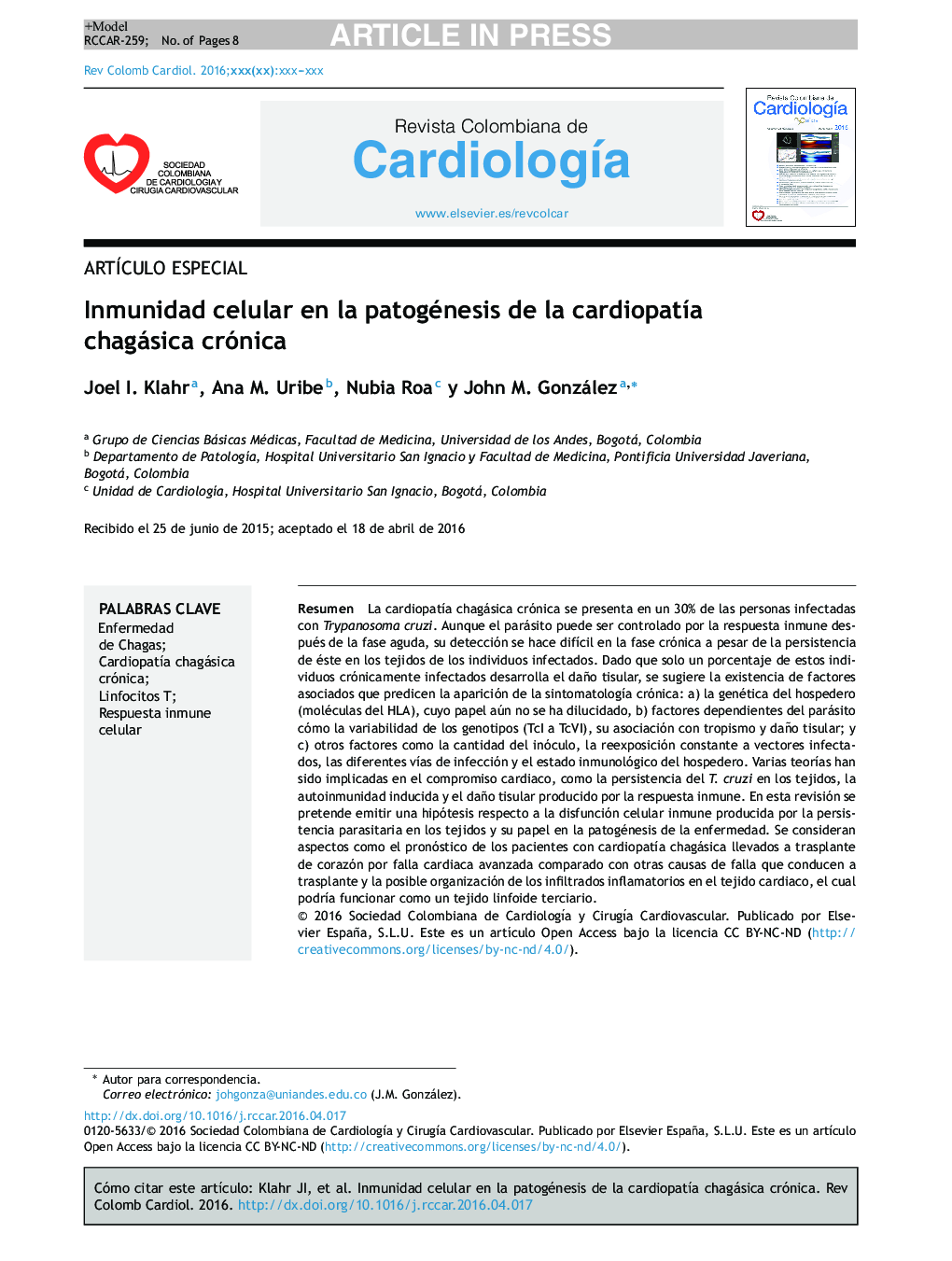| Article ID | Journal | Published Year | Pages | File Type |
|---|---|---|---|---|
| 5620365 | Revista Colombiana de Cardiología | 2016 | 8 Pages |
Abstract
Chronic Chagas cardiomyopathy is present in 30% of people infected with Trypanosoma cruzi. Even though the parasite can be controlled by immune response after the acute phase, its detection is hard in the chronic phase despite its persistence in the tissues of infected individuals. Since only a fraction of these chronically infected individuals develop tissue damage, the existence of associated predictive factors for appearance of chronic symptoms is suggested: a) host's genetics (HLA molecules) whose role has not yet been clarified; b) parasite-dependent factors such as genotype variability (TcI to TcVI), their association with tropism and tissue damage; and c) other factors like the amount of inoculum, the constant reexposure to infected vectors, the different infection routes and the host's immune status. Several theories have been put forward with regard to cardiac compromise, such as T. cruzi persistence in tissues, induce autoimmunity and tissue damage caused by immune response. This review intends to propose a hypothesis on cellular immune dysfunction produced by parasite persistence in tissues and their role in the pathogenesis of the disease. Aspects such as prognosis of patients with Chagas cardiomyopathy who undergo heart transplant due to advanced heart failure are taken into consideration and compared to other failure causes that lead to transplants, and also the possibly organisation of inflammatory infiltrates in heart tissue, which could function as a tertiary lymphoid tissue.
Keywords
Related Topics
Health Sciences
Medicine and Dentistry
Cardiology and Cardiovascular Medicine
Authors
Joel I. Klahr, Ana M. Uribe, Nubia Roa, John M. González,
